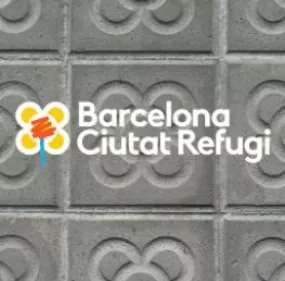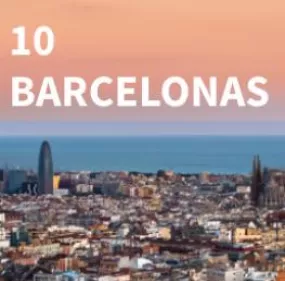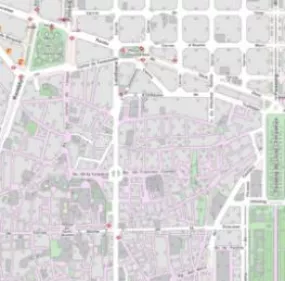
More taxes on tourism and a freeze on most taxes for citizens
The project for the Tax By-law for 2025 should mean an additional 22.6 million euros in revenue collected by the city, based on heavier taxes on tourism and a general freeze on taxes for most people in the city. The proposal also takes into account environmental challenges and attracting new investment that generates jobs in the city.
Different property tax for hotel establishments with a higher rateable value
The property tax (IBI) on buildings used for hospitality and leisure will rise from the current 1% to 1.08% for establishments with a rateable value above 5.2 million euros. The move affects 223 buildings, 208 of them hotels.
This measure comes in addition to the increase in the tourist surcharge, which this month rises to the legal maximum of 4%, and the proposal to round up the pricing for the Park Güell to 18 euros, to be applied from January.
The proposal also includes rounding up the property tax (IBI) for Buildings with Special Characteristics (BICES), 130 in all, basically located in the Port de Barcelona: cruise ship terminals, toll tunnels and natural gas terminal. The idea is for a progressive increase over three years, rising from the current 0.8% to the legal maximum of 1.3%, which will put the city on par with other port capitals such as Valencia and Algeciras.
Zona Bus 4.0 project
New regulations are established on parking tourist coaches, limiting and organising the use of spaces making up the Zona Bus and reducing the impact these vehicles have on mobility in the city, particularly in the busiest areas with the most pressure.
A new usage tax is created for the Zona Bus, consisting of an authorisation to reserve the use of spaces in advance, with a cost of 35 euros a day. In unique areas or high-influx spaces, an additional 3 euros will be payable for each operation setting down or picking up passengers.
Tourist coaches will also continue to pay the tax on the occupation of public space, with a rise of 12% compared to current rates. The calculations are that under the new by-laws, tourist coaches will go from paying an average of 20 euros a day to some 80 euros a day.
Waste tax adapted to the new legal framework
The new law makes it obligatory to have a specific non-deficit waste collection tax, in other words, covering the full cost of this service, meaning a progressive tax on pricing over the next three years.
Some 72.7% of households will see an increase of between 5 and 10 euros in their annual bill next year, in the counter category. Existing discounts will be maintained, such as the Green Point user card.
Other amendments
These include a rationalisation and improvements to the discount on the property tax for installing solar energy systems, incentivising the replacement of existing panels with other hybrid solar systems. However, road tax discounts for the purchase of a zero emissions car are limited to a maximum of five years and the discount on regulated parking drops to 50%.
Finally, discounts from 50% are planned for the tax on economic activities for investing in fixed assets of more than one million euros, the generation of jobs and companies that establish innovation centres or start-ups in the city. These discounts may reach as much as 95% for investments of more than five million euros or which generate more than 150 jobs.
The new tax by-law for 2025 was provisionally approved in October’s full council meeting.











